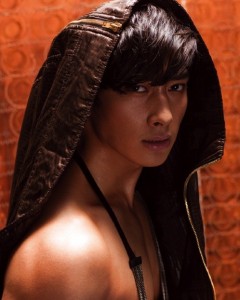
“Black hole” idols represent a special category of Korean celebrities we are used to by now: idols that lack the main requirements for their position. Gaya was kind enough this week to take them under her protective wing and offer them a defense and a label. But just to play good cop-bad cop, I think it’s only fair to highlight the arguments people have against them.
Just for starters, I don’t watch variety and I’m not a big fan of social networking (nothing against them, I just don’t like it). I locate here the main area where the gap forms between me and a more forgiving fan: I am not as involved with idols as persons as the average K-pop fan, so I can’t stan with the same vigor. By not appealing to me either musically or personally, it’s only normal that I can’t place them anywhere near my good feelings. From this moment on, a case against could be easily built:
- Maybe they’re popular or good leaders / They are talented, just not musically.
But this is what the main qualification for a singer. If they’re better at acting, why should they get a free pass while they’re performing in the music industry? - They improved.
Again, they’re performers in the music industry. If they sucked in the past and now they suck a little less, I won’t open a bottle of champagne. They should have been good in the first place, especially when companies vent out how many years of training these people have behind them. - They work hard.
So what? It’s not the quantity of work done that matters, but the quality of it. Maybe Wonder Girls’ Sohee works ten times more than Yenny. I prefer the latter anytime. - Maybe it’s just hard on the labor market.
I understand, but while I may empathize, this goes towards the person and doesn’t raise the quality of the musician in my eyes. Mercy is not enough of a value to justify a person getting a job without having the essential qualities.
I can sum up the breaking point in this plea in the following sentence:
Musically, these idols are worthless.

But this is an extra layer of the problem that covers its true core: the inevitable replacement of the word musician with entertainer. As this shift became increasingly profitable, the ones benefiting from it turned in a blink of an eye into scapegoats. If the other talents or personality traits of a singer could enhance the effect of his/her work, right now they’re the primary functions. Music has become a side dish instead of the main course.
‘Entertainer’ is etymologically linked to ‘entretenir,’ which used to describe the habit of receiving guests and trying your best so they have a good time. Basically, to entertain consists in a social ritual of avoiding boredom and doesn’t allude to any talent. The various talents that fans bring to justify black-hole idols are similar: their social role is to maintain their fans’ interest. But what about the music? Are they lowering expectations for the musical quality of a product?
For once, whenever K-pop gets criticized for its shallow nature and questionable talent, defenders bring up an indulgent conclusion on the state of the genre: it’s entertaining and it’s pop — those are the only things you get. Chances of improvement are rejected since they could contradict a definition based on the conversion pop music has suffered. In no way does this mean we have to embrace the decline in value with an open heart. Indeed, many groups are far from talented. Call me old-fashioned, but I don’t find any reasons why we should blindly accept it as a characterizing attribute for a music genre.
Moreover, when gifted groups hold their debut, we are beyond surprised, despite the fact it should be the norm. Look at the term ‘mediocre singing’ that’s often joined by ‘Hara’ or ‘Boram.’ Mediocre is not something a little above bad and it doesn’t have negative connotations, but rather sticks in the middle of the bad-good continuum. Miss A’s “Good Girl, Bad Girl” features mediocre singing: it’s in no way bad, it just doesn’t make you stand at the edge of your seat. But as untalented singers populate the music industry, we lower our standards.
 I don’t contest it, music won’t ever be enough and quality will never be a selling point. Popularity knows only its unpredictable ways. And undeniably, visual or untalented members that are good with the public provide a safety net for the group and its investors. To perform music, you need stage presence and charisma that don’t always precede talent. Taeyeon and Seohyun couldn’t achieve success without the help of a more charismatic person like Tiffany. But even in Tiffany’s case, a good voice and charisma aren’t incompatible. Hyorin brings more fans to the yard than Sistar united.
I don’t contest it, music won’t ever be enough and quality will never be a selling point. Popularity knows only its unpredictable ways. And undeniably, visual or untalented members that are good with the public provide a safety net for the group and its investors. To perform music, you need stage presence and charisma that don’t always precede talent. Taeyeon and Seohyun couldn’t achieve success without the help of a more charismatic person like Tiffany. But even in Tiffany’s case, a good voice and charisma aren’t incompatible. Hyorin brings more fans to the yard than Sistar united.
As I dig deeper into this matter, there’s no reason for these people to be here, but rather excuses. Life isn’t always fair and the same goes for K-pop, where we accept idols at odds with their profession. No one can stay uncompromising; it becomes though bothering when compromise is a K-pop fan’s way of living, where an otherwise common-sense rule becomes optional: that of singers to hold a note.
No doubt, we need entertainers, we need good-looking people, we need good performers. What we don’t need though is the separation of these qualifications from singing ability. There has never been an incompatibility between these capacities. Think about soloists like BoA who have managed to deal with all aspects of idoldom. There’s an inflation of idol groups right now as a logical consequence of lost teenagers who want to enjoy the good life. It results in positions like ‘visual’ or ‘sub-rapper,’ which beyond sounding ridiculous, are ridiculous. And the truth is, the only reason while we keep offering them excuses is because we’re used to groups having a certain number of persons and to them on being in their respective places. Being a number in a headcount doesn’t make them irreplaceable. I’m used to Ji-hyun and to 4Minute as a 5-member group, but if we were to turn back the time and replace her with some other girl, chances are the group would be perceived exactly the same way.

I don’t call now for the eradication of this not-so-newly-bred species, but to a reconsideration of how welcoming we are as a public towards them. The backlash against persons unjustifiably occupying a position is nothing new. Even St Paul calls some of the martyrs of his day attention whores (the words might have been a bit different). While there’s no doubt this special category is here to stay, the audiences have a say in how much they can take. The effects of their presence are hard to refute and letting these people roam free in the music business presents more disadvantages on the long term than upsides.
But I have spit my venom enough. What about you? Are you more optimistic than I am?
(Starship Entertainment, Men’s Health, Loen Entertainment, Dazed and Confused, Sports Korea)
